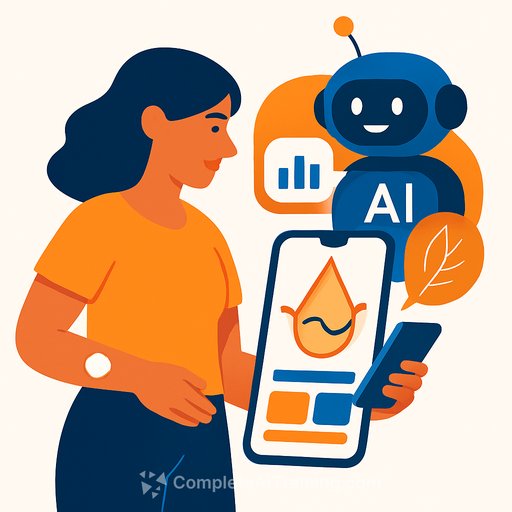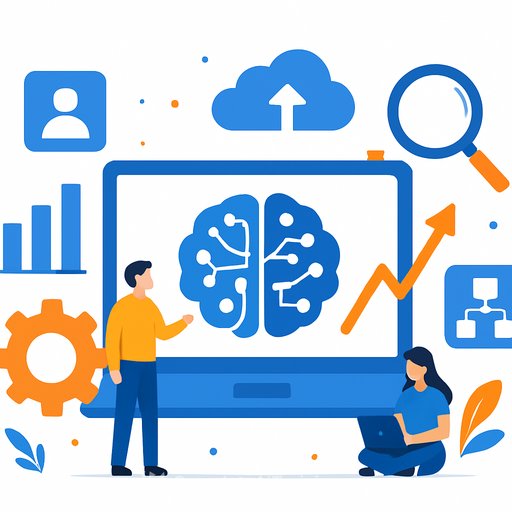Dexcom Expands Market with AI-Powered Stelo
Dexcom, known for its glucose monitoring technology, is broadening its market focus with the launch of Stelo, an AI-powered biosensor and app. Traditionally, Dexcom has served primarily type 1 diabetics who require insulin. Stelo aims to address prediabetics and type 2 diabetes patients who do not need insulin, potentially opening up a much larger consumer base.
Unlike Dexcom's G7 Continuous Glucose Monitoring (CGM) System, which requires a prescription, Stelo is available over-the-counter and is often covered by insurance. The G7 targets adults with type 1 or type 2 diabetes who use insulin or medications. Stelo is sold as a two-pack biosensor for $99, with subscription plans available at $89 monthly or $252 quarterly. Each biosensor lasts 15 days, is worn on the back of the upper arm, and connects to an app on iOS or Android devices.
Market Potential
Globally, diabetes affects 589 million adults aged 20 to 79 in 2024, with projections reaching 853 million by 2050, according to the International Diabetes Federation Atlas. In the US, diabetes care consumes more than 25% of healthcare spending. Continuous glucose monitoring has been shown to reduce risks for type 2 diabetes patients not on insulin, supporting Dexcom’s push for broader insurer coverage of Stelo.
Kevin Sayer, Dexcom CEO, highlighted on their Q1 earnings call that Stelo is attracting a diverse customer base across type 2 diabetes, prediabetes, and wellness markets. Dexcom has also expanded sales channels, including launching an Amazon storefront, setting the stage for growth ahead of its Q2 earnings report.
AI Strategy and Growth
Girish Naganathan, Dexcom’s CTO, explained that AI is integral to both product innovation and operational efficiency. The company focuses on solving patient problems through data-driven insights, accelerating innovation and improving product performance.
Dexcom’s recent revenue growth has been inconsistent, ranging from 3% to 25% over the past five quarters. After cutting its 2024 outlook due to underperformance in type 1 diabetes products, the company is aiming for $4.6 billion in revenue for fiscal 2025. Expanding sales coverage and pharmacy benefit manager partnerships are key to this recovery.
Supply chain challenges, including sensor shipment damages, affected the first quarter. CFO Jereme Sylvain noted that Dexcom improved logistics by chartering direct flights and adjusting processes, though global freight costs increased by 100 basis points to meet demand.
FDA Recall and AI Integration
Dexcom is managing an FDA recall impacting over 700,000 devices due to a manufacturing issue affecting audible alerts on receivers. This recall includes models G7, G6, One, and One+ CGMs.
In December 2024, Dexcom launched its generative AI platform for glucose monitoring, integrating Stelo’s biosensor data with AI-powered insights. The technology is built on Google Cloud’s Vertex AI and Gemini models. At CES 2025, Dexcom showcased how this AI platform aims to transform healthcare delivery by linking lifestyle choices to glucose outcomes.
The goal is to empower users with personalized insights and actionable data to encourage healthier habits. This AI integration could differentiate Dexcom in a competitive market that includes Abbott Labs, Medtronic, and LifeScan.
Future Directions
Dexcom leverages AI tools like Google Cloud Vertex and Gemini to turn complex data into useful insights for both patients and healthcare providers. The company plans to personalize Stelo offerings for type 2 diabetes patients and sees AI evolving to combine voice, video, text, and images for enhanced device functionality.
AI is expected to improve device adaptability, adjusting to user behavior in real time. Internally, Dexcom uses generative AI to automate documentation and engineering workflows, boosting development speed and efficiency.
Dexcom’s AI and data ecosystem includes:
- Sensors: Advanced biomaterials and electronics track glucose levels continuously.
- Receivers and transmitters: Wireless systems transmit data to compatible mobile devices.
- Dexcom Real-Time API: Enables third-party developers to integrate continuous glucose monitoring data into health applications.
The company also holds an exclusive licensing agreement with Verily Life Sciences (an Alphabet unit), further strengthening its technology portfolio.
Sayer noted strong subscription retention among Stelo users, particularly type 2 patients, driven by valuable data and improved reimbursement coverage. Naganathan emphasized the importance of building trust with AI by providing transparent, personalized insights that support behavior change without judgment.
Dexcom plans to expand its partnerships with consumer tech companies to bring metabolic health insights to a broader audience. Their AI strategy focuses on:
- Targeting type 2 diabetics and prediabetic individuals.
- Connecting lifestyle factors like sleep, activity, and nutrition to glucose outcomes.
- Using insights to encourage positive change through nudges rather than judgment.
- Aggregating data points from multiple sources for richer understanding.
- Providing education, resources, and healthcare provider integration via electronic health records.
This approach aims to give primary care physicians a more comprehensive view of patients’ glucose trends over time.
AI Adoption and Product Development
Dexcom is taking a cautious, stepwise approach to AI, beginning with retrospective insights and moving toward real-time coaching as confidence builds. The company is collaborating closely with regulators to ensure safe integration.
This phased rollout reflects an understanding that AI adoption won’t occur overnight but will evolve as technology and organizational challenges are addressed.
Recent product updates to Stelo include a 180-day data lookback feature, improving customer experience metrics. Additionally, Dexcom received FDA clearance for a 15-day G7 system rollout scheduled for later in the year.
Research Themes for Product Development
- Data to Decisions: Using data to inform actionable healthcare improvements.
- Innovation and Product-led Growth: Leveraging AI to enhance product offerings and market reach.
- Next-Generation Customer Experience: Delivering personalized, intuitive user interactions through AI.
For product developers, Dexcom’s approach illustrates how AI can integrate with hardware, software, and service models to create new consumer opportunities and improve health outcomes.
Your membership also unlocks:






